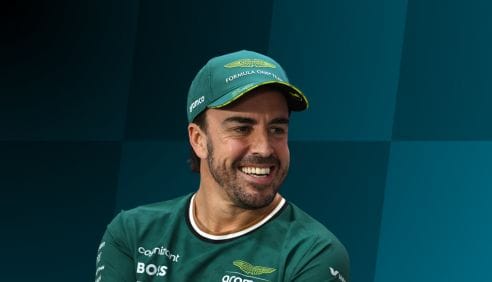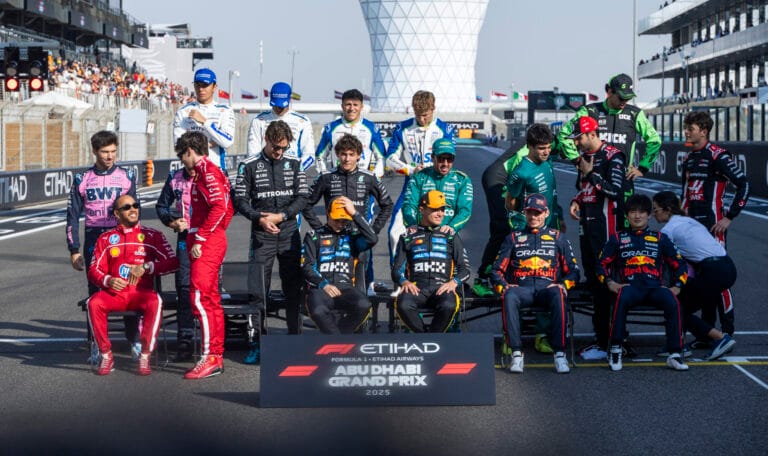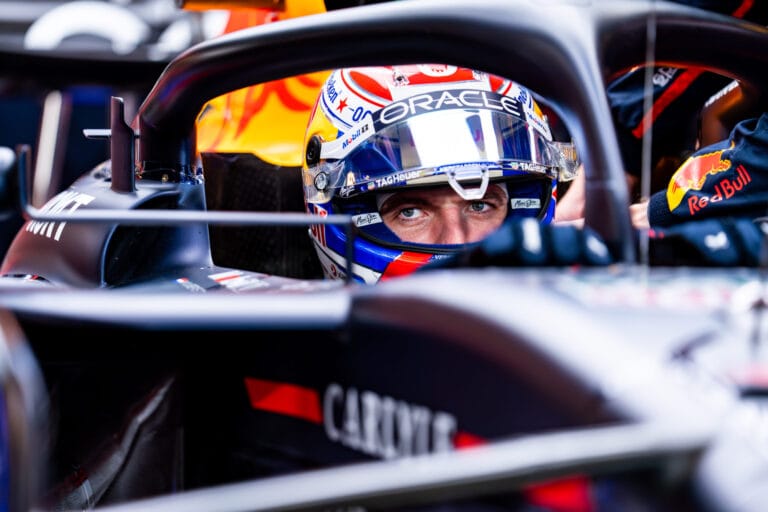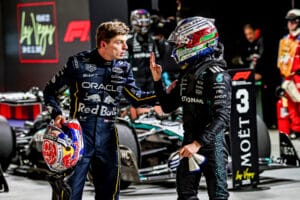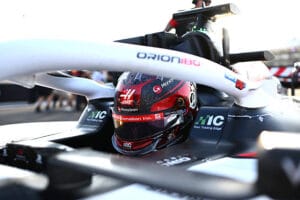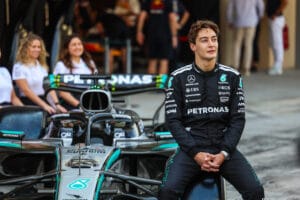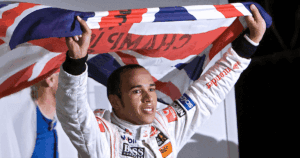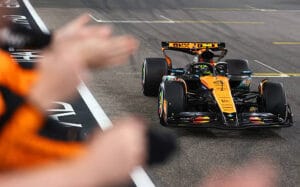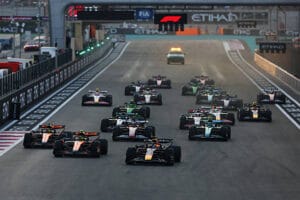Fernando Alonso Díaz: A Legacy in Formula 1
Fernando Alonso Díaz, born on July 29, 1981, in Oviedo, Spain, has cemented his legacy as one of the most influential and celebrated drivers in Formula 1 history. With a career spanning more than two decades, Alonso’s journey is characterized by extraordinary achievements, fierce rivalries, dramatic team dynamics, and a relentless pursuit of excellence.
Early Life and Karting Career
Fernando Alonso’s journey began in Oviedo, a charming city in Asturias, Spain, where he developed his passion for racing at a young age. His father, José Luis Alonso, recognizing his son’s natural affinity for speed, constructed a homemade kart for young Fernando. Alonso quickly demonstrated remarkable racing instincts, participating in local competitions by the age of five. His dedication and competitive spirit soon led him to national competitions, earning multiple Spanish karting titles and eventually triumphing internationally, notably clinching the World Junior Karting Championship in 1996.
The Alonso family’s unwavering support, despite modest financial means, was essential in Fernando’s progression. They traveled extensively, providing him with opportunities to compete against the best young talent across Europe, laying a crucial foundation for his motorsport career.
Single-Seater Racing Progression
Alonso transitioned seamlessly from karting into single-seater racing, joining the Spanish Formula Nissan series in 1999. Remarkably, he captured the championship title in his rookie season, demonstrating maturity and adaptability. His continued success led to a move to the International Formula 3000 championship, further solidifying his reputation as an emerging talent destined for Formula 1.
Formula 1 Debut with Minardi
In 2001, Alonso debuted in Formula 1 with Minardi, a small team often struggling to compete due to limited resources. Despite the inferior machinery, Alonso consistently showcased his skill by pushing the car beyond expectations, frequently outperforming seasoned teammates and earning praise from the racing community. His impressive performances garnered attention from leading Formula 1 teams, leading to his recruitment by Renault.
Renault: Rise to Stardom
Alonso joined Renault as a test driver in 2002, significantly contributing to car development through insightful feedback. Promoted to race driver in 2003, Alonso quickly proved his worth by winning his first Grand Prix in Hungary, setting a record as the youngest Formula 1 race winner at that time. This victory marked the beginning of his rise to stardom.
Alonso’s prime years with Renault were 2005 and 2006, during which he secured consecutive World Championships. His consistent performances and strategic brilliance allowed him to challenge and eventually surpass Michael Schumacher and Ferrari’s dominance. Alonso’s intense yet respectful rivalry with Schumacher is remembered fondly as one of Formula 1’s greatest eras.
McLaren and Hamilton Rivalry
The 2007 season saw Alonso move to McLaren, pairing with talented rookie Lewis Hamilton. Their fierce internal rivalry, marked by competitiveness and tension, made headlines throughout the season. Despite challenging team dynamics, Alonso achieved significant race victories and nearly secured another championship. Nevertheless, the team’s internal friction culminated in Alonso departing after just one season.
Renault: Second Stint and Challenges
Alonso returned to Renault in 2008, aiming to restore former glory. Despite winning races, his time was marred by controversy, notably the “Crashgate” scandal involving teammate Nelson Piquet Jr.’s intentional crash. Although Alonso continued to impress on track, Renault’s declining competitiveness led him to pursue opportunities elsewhere.
Ferrari Years: Triumph and Heartbreak
Joining Ferrari in 2010 fulfilled Alonso’s childhood dream. Over five seasons, he consistently fought at the front, engaging in fierce battles with Sebastian Vettel and Red Bull Racing. Alonso narrowly missed capturing his third world title on several occasions, particularly in the dramatic final races of 2010 and 2012. Despite numerous race wins and podium finishes, these near misses defined his Ferrari era, highlighting both his exceptional talent and his profound frustration.
McLaren-Honda Era: Frustration and Determination
In 2015, Alonso rejoined McLaren, optimistic about renewed success alongside Honda engines. Unfortunately, persistent reliability and performance issues significantly hampered competitiveness, leading Alonso to voice frustration openly, epitomized by his “GP2 engine” outburst at Suzuka. Despite his struggles, Alonso’s talent remained clear, even as his patience waned, ultimately prompting his departure from Formula 1 at the end of 2018.
Sabbatical and Success in Diverse Motorsport Disciplines
Alonso’s sabbatical allowed him to explore racing beyond Formula 1. He demonstrated remarkable versatility and achieved notable success, winning the esteemed 24 Hours of Le Mans twice with Toyota, capturing the 24 Hours of Daytona title, and competing valiantly in both the Indianapolis 500 and Dakar Rally. These achievements solidified his status as one of motorsport’s most versatile competitors.
Formula 1 Return with Alpine
Alonso’s passion for Formula 1 led him back to the grid in 2021 with Alpine, previously known as Renault. He quickly reasserted his competitiveness, securing impressive results, including a memorable podium finish in Qatar. However, despite his notable performances, contractual differences ultimately led Alonso to seek a fresh challenge with Aston Martin for 2023.
Aston Martin: New Beginnings
With Aston Martin, Alonso began a promising new chapter, bringing his vast experience and unrelenting determination to the ambitious British team. His impact was immediate, contributing significantly to team development and morale. Alonso’s relentless pursuit of excellence continued to energize both team and fans alike, fueling hopes for future victories.
Alonso’s Distinctive Driving Style
Fernando Alonso is renowned for his assertive yet precise driving style, characterized by exceptional car control, strategic insight, and adaptability. His extensive technical feedback has consistently been praised by engineers, proving instrumental in car development across multiple teams. Alonso’s skill in extracting peak performance from diverse machinery underscores his technical prowess and adaptability.
Cultural Legacy and National Influence
Alonso’s influence extends significantly beyond racing, particularly in Spain, where he elevated the popularity of motorsport. His successes inspired countless individuals, notably increasing youth participation in racing. The Fernando Alonso Museum in Asturias preserves his illustrious career, ensuring his legacy inspires future generations.
Commitment to Fitness and Longevity
Alonso’s rigorous physical and mental training regimen has played a critical role in sustaining his extended career. His comprehensive conditioning approach ensures peak performance, even as he races into his forties. Alonso’s disciplined preparation exemplifies his dedication and serves as a standard within the motorsport community.
Philanthropy and Public Influence
Beyond racing, Alonso actively engages in charitable initiatives, notably supporting UNICEF and promoting road safety. His approachable yet reserved persona has further solidified his popularity, enhancing his influence both within and outside motorsport.
Fernando Alonso Museum: Preserving a Legacy
A testament to Alonso’s lasting legacy in motorsport is the Fernando Alonso Museum and Circuit located near his hometown of Oviedo in Asturias. Opened in 2015, the museum houses an extensive collection of Alonso’s cars, trophies, racing suits, helmets, and memorabilia from his remarkable career, meticulously documenting his achievements and milestones.
The adjacent karting circuit, personally designed with input from Alonso himself, serves as both a tourist attraction and an active training facility for young racers aspiring to follow in his footsteps. Alonso’s direct involvement ensures the facility provides an authentic experience, combining inspiration, education, and practical racing experience. It embodies Alonso’s vision of nurturing future motorsport talent, ensuring his influence endures far beyond his own active years in competition.
Influence on Spanish Motorsport and Cultural Impact
Alonso’s ascension in Formula 1 dramatically transformed motorsport culture in Spain. Prior to Alonso’s achievements, motorsport popularity in Spain was relatively modest. His victories, particularly his World Championships in 2005 and 2006, ignited unprecedented national enthusiasm for racing. The resultant ‘Alonso Effect’ spurred significant investment into motorsport infrastructure across Spain, including the
Circuit Ricardo Tormo in Valencia and the Circuito de Navarra.
Alonso inspired an entire generation of Spanish racing drivers, including current Formula 1 driver Carlos Sainz Jr., who has frequently cited Alonso as his childhood hero. This surge in motorsport popularity also positively impacted local economies, tourism, and international perceptions of Spain as a nation capable of producing world-class sporting talent.
Alonso’s Driving Style: An In-depth Analysis
Fernando Alonso’s driving style is notably distinctive, blending aggression with exceptional strategic judgment. Experts often describe Alonso as a driver who performs best under pressure, consistently delivering exceptional performances in adverse conditions, such as rain or challenging tracks. His celebrated ability to read evolving race situations and adapt swiftly has earned him the reputation as one of Formula 1’s most intelligent competitors.
His technique, particularly his precise and smooth cornering style, allows him to preserve tire life, giving him strategic advantages in longer stints during races. Engineers across multiple teams have lauded his feedback, which has significantly influenced car development. Former Renault team principal Flavio Briatore once remarked that Alonso’s feedback “is worth seconds per lap,” highlighting the profound technical impact he has had throughout his career.
Fitness and Longevity: Alonso’s Secret to Endurance
Fernando Alonso’s impressive longevity in Formula 1—competing at peak levels into his forties—can be attributed to his rigorous physical and mental fitness regimen. His comprehensive training includes extensive cardiovascular conditioning, endurance training, and strength exercises tailored specifically for the demanding conditions experienced by Formula 1 drivers. Alonso also employs specialized reaction-time training, enhancing his quick reflexes critical for competitive racing.
Mental resilience has been another cornerstone of Alonso’s longevity. He has openly discussed working closely with sports psychologists, using visualization techniques and cognitive exercises to maintain sharpness under pressure. This holistic approach has allowed him to continually compete effectively against significantly younger drivers.
Personal Interests and Life Outside Racing
Away from the racetrack, Fernando Alonso maintains a rich personal life filled with diverse interests. A passionate football fan, he avidly supports Real Madrid, frequently attending matches and publicly supporting the club. Alonso also has a well-known interest in cycling, regularly incorporating extensive cycling sessions into his fitness training. His love for cycling has led him to participate in numerous charity cycling events, combining his passion for sports with philanthropy.
Additionally, Alonso has ventured into business, notably launching his own clothing and merchandise brand, Kimoa. Established in 2017, Kimoa offers eco-friendly apparel, reflecting Alonso’s personal interest in sustainability and environmental consciousness. The brand’s popularity has grown significantly, further demonstrating his multifaceted influence.
Future Prospects and Ongoing Ambitions
Fernando Alonso continues his quest for excellence, currently racing with the Aston Martin Formula 1 team. His ambition for further success remains undiminished, driven by a deeply rooted competitive spirit and passion for racing. Alonso openly acknowledges his ongoing desire to secure a third Formula 1 World Championship, stating repeatedly that his return to the sport is motivated primarily by competitiveness rather than merely participation.
Reflecting on Alonso’s Legacy
As Fernando Alonso’s illustrious career continues to evolve, his legacy within motorsport remains profound. He stands not merely as a celebrated Formula 1 champion but as a global sporting icon whose impact transcends racing. His dedication, resilience, and continuous pursuit of excellence serve as enduring inspiration, influencing aspiring drivers and enthusiasts worldwide.


